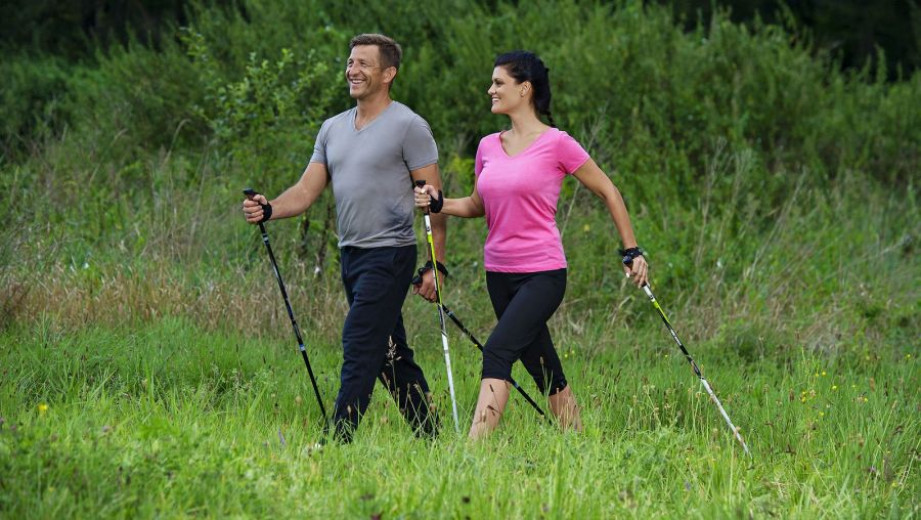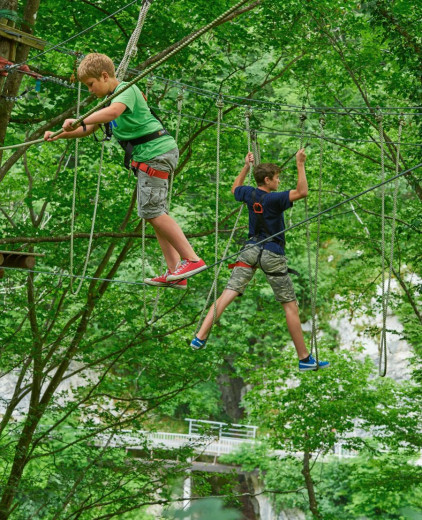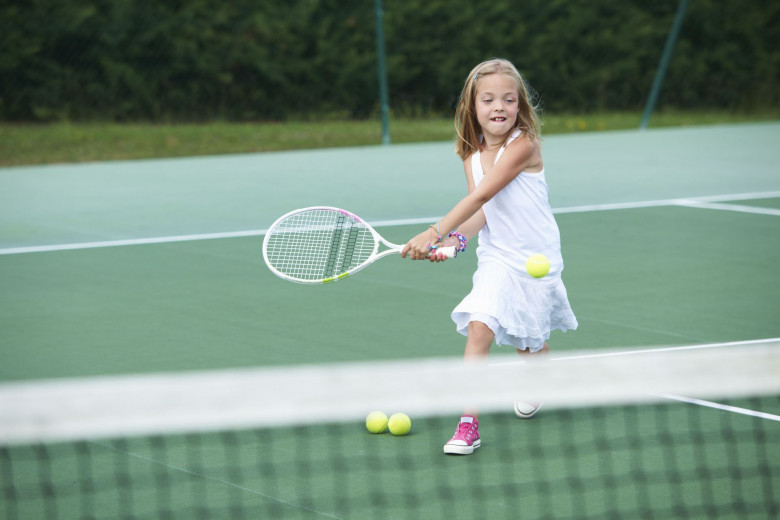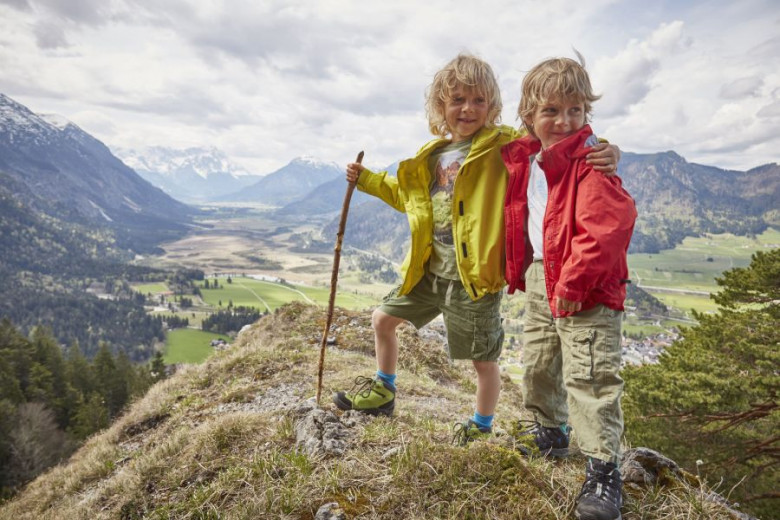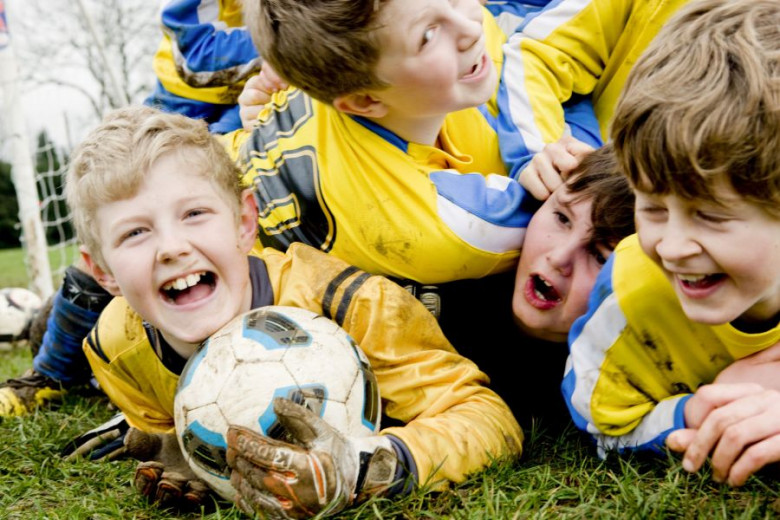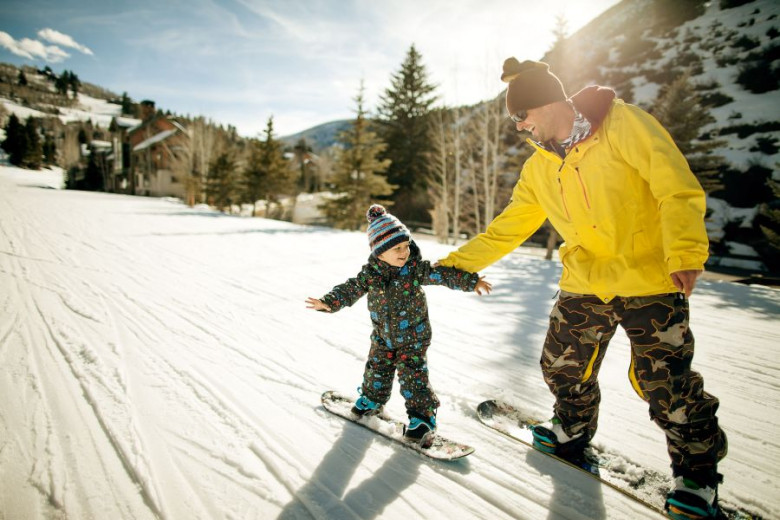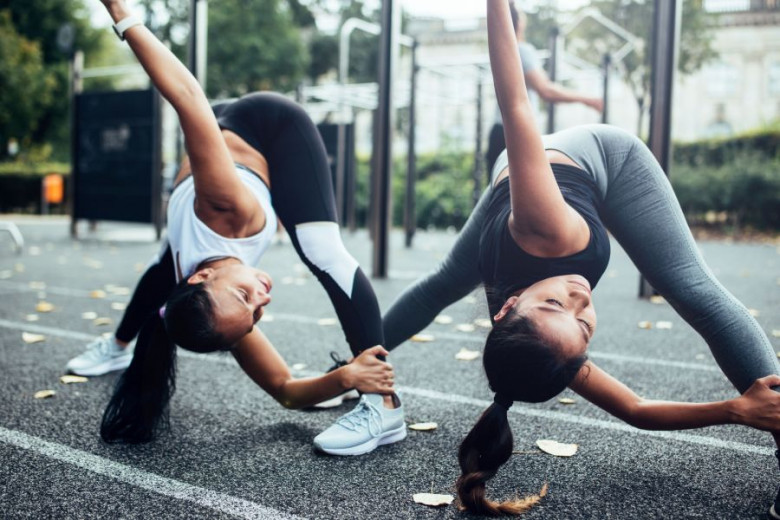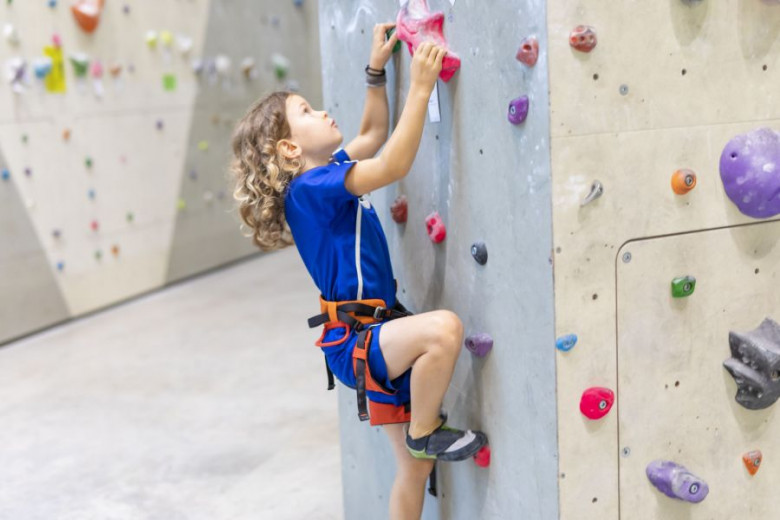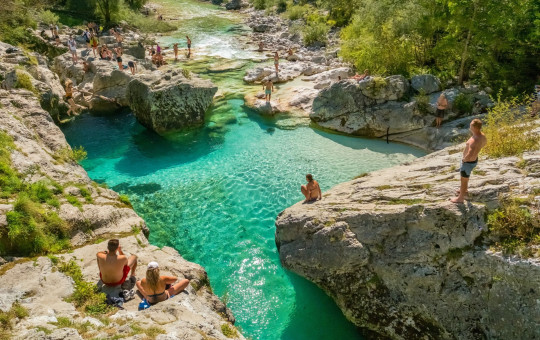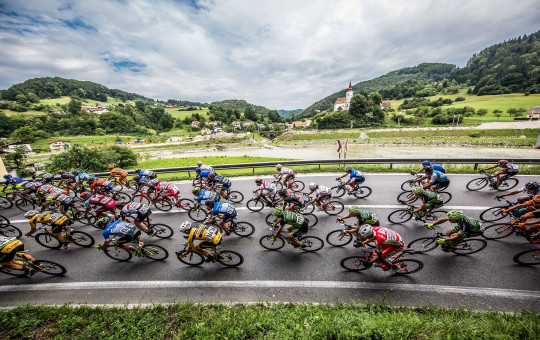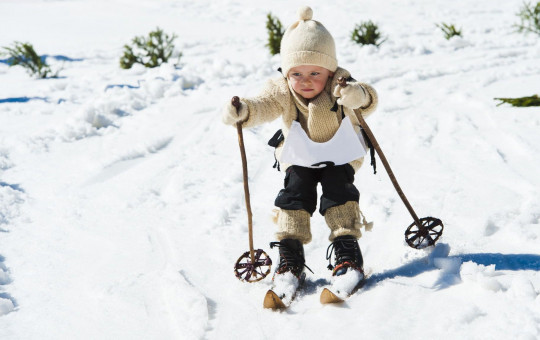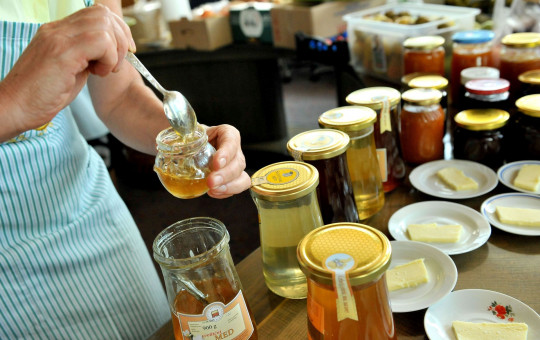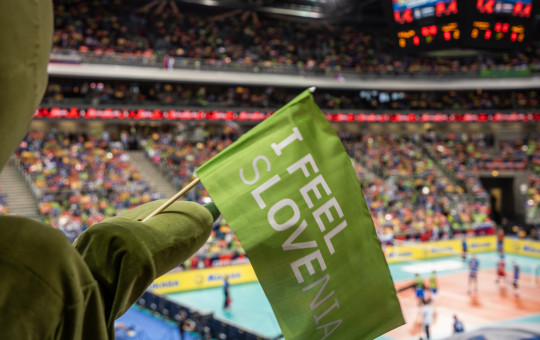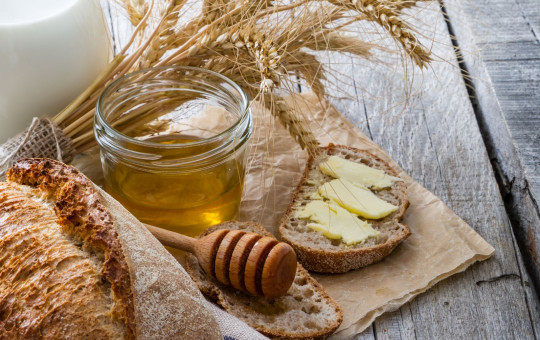This week is marked by sports in Slovenia and Europe alike. For a sixth consecutive year, EU Member States are celebrating the European Week of Sport, while Slovenia will celebrate its first national holiday dedicated to sport on 23 September. Yes, you read it right: exercise is so important to most Slovenians that from now on, sport has its own national holiday!
Are you also a sports enthusiast? Is it difficult for you to imagine a day without physical activity? If your answer is yes and you lived in Slovenia, you would be among the over 60% of Slovenians who occasionally or regularly engage in physical activity.
Yes, we love our sports! We are indeed a very active nation!
If possible, we walk or cycle to work. We spend our weekends in nature, our holidays are active and sometimes the staircases of commercial buildings are busier than the elevators! Slovenians like to say that sport is in their blood.
We are among the European Union countries that attach the greatest importance to sport and health. The two are closely interconnected, so the Ministry of Education, Science and Sport is striving to increase the share of the regularly physically active population even further, with a view to yet further increasing participation in sporting activities. We are all aware that sport is indispensable for the health of our society and the state has put those principles into practice by systemically integrating sports as a subject into all the stages of education.
It is important to start with the youngest. Education about a healthy lifestyle is essential. To that end, significant attention is given to regular physical activity as early as in kindergarten.
Nature walks, outdoor activities, first movement and dance classes, and football are small steps towards exercise eventually becoming a habit. Children subconsciously internalise exercise and choose it as their lifelong companion. They pass on their love of sports to their sisters, brothers, parents, grandfathers, grandmothers and vice versa. The family environment also affects a child’s physical activity from a young age.
The sports education card
In primary school, in addition to regular PE classes, children can also choose afternoon sports activities. Schools themselves or in collaboration with local communities, sports clubs and associations prepare a wide range of sports for the pupils to choose from.
They offer football, handball, basketball, volleyball, dance, athletics, rhythmic gymnastics and much more.
Physical education also includes the sports education card, which consists of measuring the physical mobility of the primary school population and has been systematically performed since 1970. Testing shows whether a pupil’s physical abilities are improving or regressing.
In addition, three of the pupils’ physical characteristics are measured (height, weight and upper-arm skin fold).
The analysis of the collected data shows changes in physical mobility and physical characteristics of pupils at the national level, while at the same time giving the pupils and their parents an insight into their personal physical development.
At the national level, the data helps in designing further strategies for the development of sport for the youth and certain content orientations of physical education classes.
-
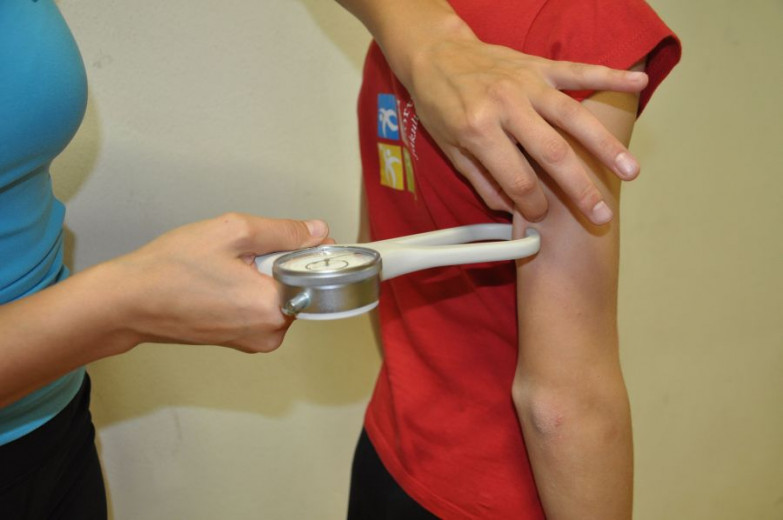
Skin fold provides data on the amount of fat mass. A high value is a sign of energy imbalance, which increases the health risk of contracting cardiovascular diseases, type 2 diabetes and certain forms of cancer. Photo: DIF archives
-
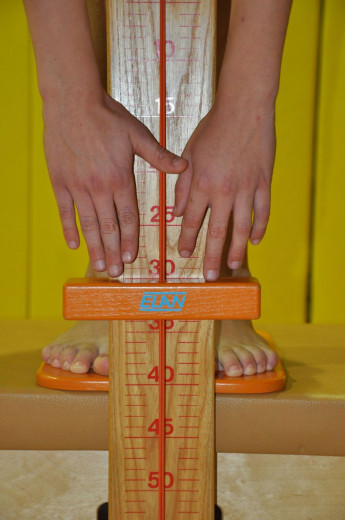
Bending forward on the bench is a measurement task that provides data on the flexibility of the legs and lower back. Low values indicate the risk of injury and incapacity to make leg movements to full amplitude. Photo: DIF archives
Mass participation of pupils and secondary school students in school sports competitions also shows the popularity of sports among young people. According to data from the Planica Sports Institute, over 90,000 athletes compete every year, which amounts to almost 35% of the primary and secondary school population. Each year they compete in as many as 38 sports disciplines.
So sport is taken very seriously in Slovenia, and we can say that we are pretty successful in the promotion of a healthy lifestyle.
However, it cannot be denied that digitisation and the virtual world have affected the lifestyle of children and youth. The streets and playgrounds used to be full of young people, while nowadays they more often socialise digitally. Children are receiving their first smartphones at an ever younger age. Twenty years ago, we generally received our first mobile phones towards the end of secondary school, while nowadays some children are getting them as early as the beginning of primary school.
They are increasingly finding their friends and forming social groups online instead of playing with their peers outside.
Of course, orienting children towards exercise is a challenge faced not only by Slovenia but also by countries throughout the world.
Meanwhile, the pandemic has posed an additional obstacle, preventing socialisation, causing gymnasiums, sports centres and schools to close, and stripping many people of their opportunities to exercise. The society is well aware of the importance of sports, so together we are seeking solutions that will benefit both professional and recreational athletes.
Finally, you are invited to join the celebration of the Day of Slovenian Sport. A nature walk, a run or a bike ride will do you good!
The Minister of Education, Science and Sport, Simona Kustec, extended a special invitation to celebrate the Day of Slovenian Sport to everyone in the education system: "I wish this day to be a motivation to all children, pupils and secondary school students to engage in sports and physical activity. To express their relationship with sports through physical activity to the best of their abilities and to learn about the many positive effects, including strengthening of physical and mental health, promoting positive values and connecting citizens," she wrote in her invitation to children and youth.
Date: 22. September 2020
Time to read: 2 min

